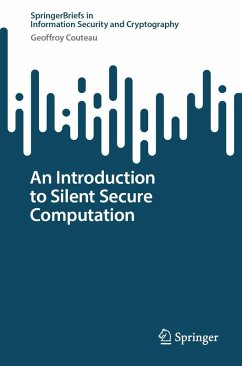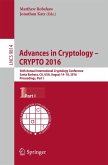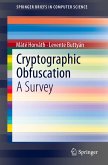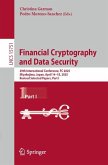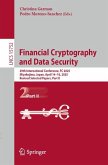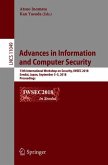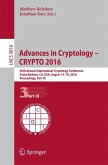Secure computation allows any number of mutually distrustful parties to jointly run an
arbitrary computation on their combined inputs without compromising their privacy. Secure
computation offers a theoretical solution to a vast array of problems where one wishes to
simultaneously maintain a fine-grained control over the users privacy and have flexibility
in how their data is used in a protocol. Over the past decade, secure computation has
largely emerged from the depth of theoretical research to enter the realm of practically-usable
technologies, and secure protocols are now routinely implemented and deployed. This is
the result of a widespread and ongoing research effort from the cryptography community,
which has produced a diverse ecosystem of protocols and paradigms optimized for a variety
of concrete applications. This book covers one such recent paradigm, the area of silent
secure computation, which strikes a careful balance between communication and computation
overheads. This paradigm has recently emerged as a promising path towards fast secure
computation in bandwidth-restricted settings, and has had a significant influence on the
landscape of practical secure computation. The goal of the book is to provide an accessible
introduction to silent secure computation. It is aimed at Ph.D. students and researchers
in cryptography and has a strong focus on explaining the intuitions and giving the reader
a sense of scale, in the hope of conveying insights about the practicality of silent secure
computation in various contexts and to give a clear overview of some of the core challenges
in the field.
arbitrary computation on their combined inputs without compromising their privacy. Secure
computation offers a theoretical solution to a vast array of problems where one wishes to
simultaneously maintain a fine-grained control over the users privacy and have flexibility
in how their data is used in a protocol. Over the past decade, secure computation has
largely emerged from the depth of theoretical research to enter the realm of practically-usable
technologies, and secure protocols are now routinely implemented and deployed. This is
the result of a widespread and ongoing research effort from the cryptography community,
which has produced a diverse ecosystem of protocols and paradigms optimized for a variety
of concrete applications. This book covers one such recent paradigm, the area of silent
secure computation, which strikes a careful balance between communication and computation
overheads. This paradigm has recently emerged as a promising path towards fast secure
computation in bandwidth-restricted settings, and has had a significant influence on the
landscape of practical secure computation. The goal of the book is to provide an accessible
introduction to silent secure computation. It is aimed at Ph.D. students and researchers
in cryptography and has a strong focus on explaining the intuitions and giving the reader
a sense of scale, in the hope of conveying insights about the practicality of silent secure
computation in various contexts and to give a clear overview of some of the core challenges
in the field.

